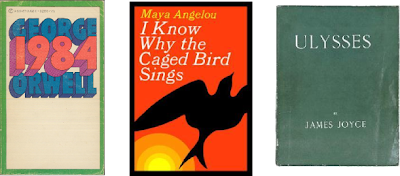 It is F. Scott Fitzgerald’s birthday in a few weeks and it got me thinking: What makes a writer timeless? What makes a book a classic? Why do some books (like Gone with the Wind, Of Mice and Men, A Tale of Two Cities, Heart of Darkness) last and others quickly fade from the public consciousness?
It is F. Scott Fitzgerald’s birthday in a few weeks and it got me thinking: What makes a writer timeless? What makes a book a classic? Why do some books (like Gone with the Wind, Of Mice and Men, A Tale of Two Cities, Heart of Darkness) last and others quickly fade from the public consciousness?
And what defines a classic? Who determines which books are classics and which are fads? And what criteria do they use?
 Furthermore, when can a book be determined a classic? Is, for instance, the Harry Potter series classic? Do we have to wait a generation or two before we can award a book that label? Does it have to stand some test of time? Or define some time period or era?
Furthermore, when can a book be determined a classic? Is, for instance, the Harry Potter series classic? Do we have to wait a generation or two before we can award a book that label? Does it have to stand some test of time? Or define some time period or era?
What say you? This is your chance to weigh in: What makes a book a classic?
(Did you realize this post is entirely comprised of questions? Isn’t that fun?)
Author: KateBitters
Kate Bitters is a Minneapolis-based author and freelance writer. She is the author of Elmer Left, Ten Thousand Lines, and He Found Me. One of her proudest/nerdiest moments was when Neil Gaiman read one of her short stories on stage at the Fitzgerald Theater.

I believe, for a book to be considered a classic, it has to have a layered message. This would include a surficial (this is spelled correctly) story, but also contain and convey a deeper meaning (s) that is timeless. The 'deeper meaning' must teach us something or make us think. I mean really think about what is being said.
I like that perspective. Every classic I can think of has multiple layers and meanings which forces us to dig deep into the book. It seems to me that some of these layers contain disguised (or not) political or social commentary. Do you agree?